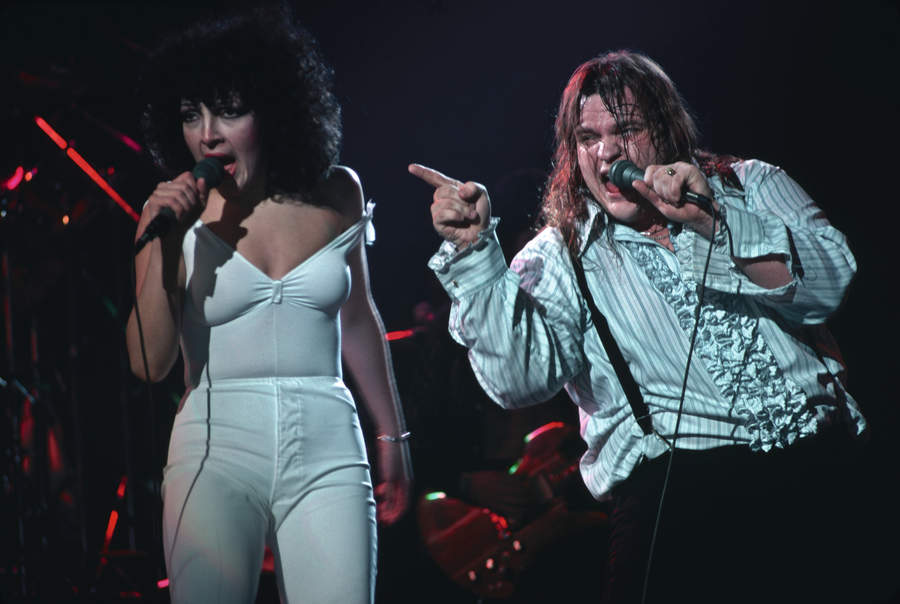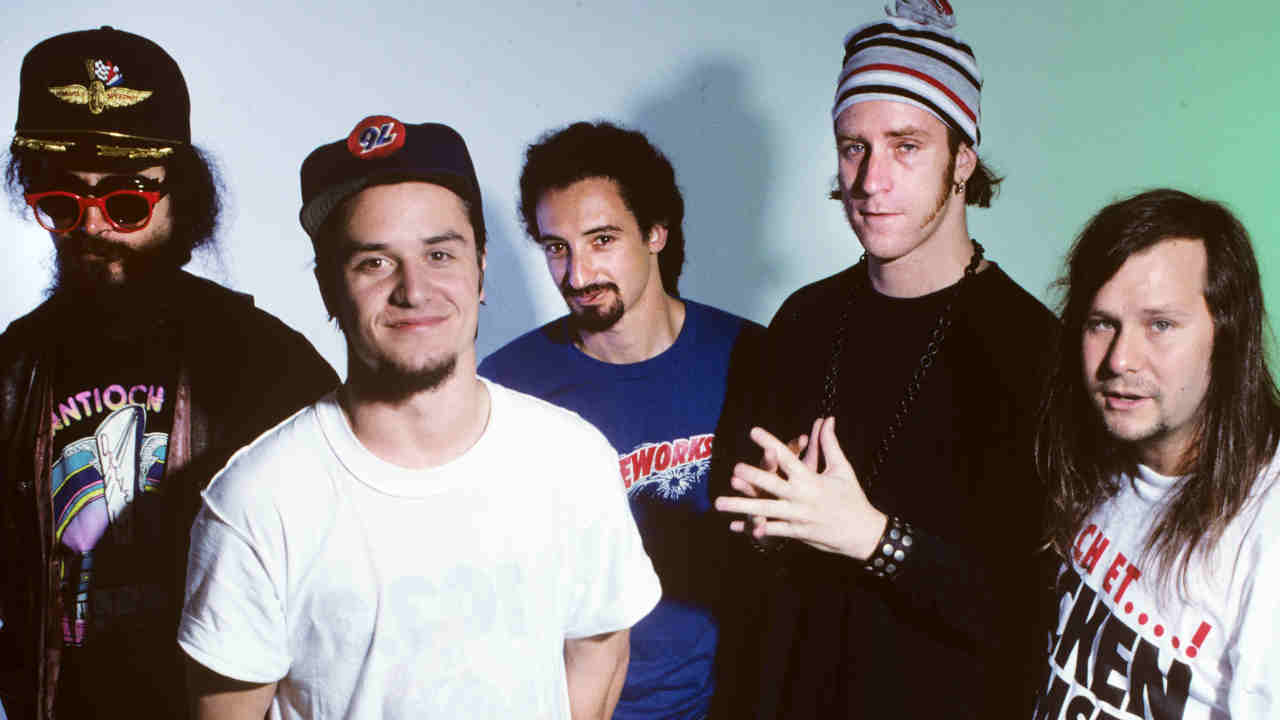Heaven Can Wait by Meat Loaf: The story behind the song
One of the more delicate moments on Meat Loaf's Bat Out Of Hell, some cite the album’s shortest track – originally demoed by Bette Midler – as its best

It’s the summer of 1977, and singer Meat Loaf and songwriter Jim Steinman are preparing to unveil an astonishing album that by rights shouldn’t have existed. At this point, Meat and Jim, plus record label boss Steve Popovic and producer Todd Rundgren, are among a tiny handful of people in the world crazy enough to believe in the potential of the singer and songwriter’s masterpiece, Bat Out Of Hell.
Defying the odds stacked against them, somehow the record had been made over two a two-year period, and with a release set for October 21 that year, suddenly the clock was ticking. Meat needed a band to back him, and a tour. Still a complete unknown, he had to get in people’s faces. But there was an immediate problem. Ellen Foley, who had performed lead vocals on one of the album’s central tracks, Paradise By The Dashboard Light, and added background harmonies to a further four songs, was unavailable.
“The record had been recorded [between 1975 and ’76], and there was such a long time between that and its release, when it came out I was busy on Broadway,” Foley explains now. “I was doing films and making demos for my own album, Night Out [released that same year]. The timing was lousy.”
Foley had played her part in getting Bat Out Of Hell off the ground, trudging around record company boardrooms with Meat Loaf and Steinman as they performed its songs to often disbelieving executives; she had been present when Arista’s Clive Davis incited Meat’s rage by informing Steinman that he just couldn’t write songs.
“We auditioned for so many record labels or producers that were left flummoxed and confused,” Foley says with a laugh. “They were terrified by what they heard, the poor things.”
Team Loaf held several days of auditions for female singers to act as a foil for the album and show’s star.
“Ellen had a great voice, but it was critical that if Bat Out Of Hell was to work on stage the girl that played opposite me had to be a great actress,” Meat recalled in his autobiography To Hell And Back. “When I saw Karla DeVito, I knew that this was the girl.”
Sign up below to get the latest from Classic Rock, plus exclusive special offers, direct to your inbox!
Optimistic of the project’s potential, DeVito quit her band Luna, who months earlier had been a hair’s breadth away from being signed to Sire Records by the label’s co-founder Seymour Stein. She had no idea what she was throwing herself into.
“I was so inexperienced, on the way to shoot the video [for Paradise By The Dashboard Light] I asked Meat: ‘I’m not going to be lip-synching Ellen’s part [from the record], am I?’ And he said: ‘I don’t think so!’” she says now laughing. “Even he didn’t know.”
Of course, DeVito was required to pretend to be Foley, so when Bat Out Of Hell confounded its countless cynics, eventually selling more than 50 million copies, perhaps it was not unreasonable for Foley to have felt resentment.
"It was hard for me to come to terms with people thinking that Karla was singing on the album, and that bothered me for a long time,” she admits. “And when she lip-synched in the video it really struck in my craw. But I came to realise that anyone who knows me or my history, or Meat Loaf’s history, will know that I sang that song.”
Nevertheless, Foley was now out of the loop, and it was DeVito who became a star as the album began its slow burn to the top. Meat Loaf later recalled that at the band’s first gig, in Chicago, opening for Cheap Trick, not a single soul applauded their arrival, adding: “By the end they didn’t exactly like it, but they had stopped calling me a fat fuck. I considered that a victory."
Among the first moments that DeVito began to appreciate Bat Out Of Hell’s pull was July 19, 1978, when Meat Loaf supported Electric Light Orchestra at the CNE Stadium in Toronto. ELO, touring OutOf The Blue, were beginning to realise what they had taken on.
“They gave us the tiniest amount of lights and just a small percentage of the sound system, and we blew the stadium away,” DeVito recalls. “It was crazy, because [the organisation] was making up the rules as they went along – it felt like being on a pirate ship. You’re out at sea and wondering whether there will be a mutiny or some other disaster. But nonetheless you went out there and delivered. Jim’s motivational speeches were incredible. Put him with Meat and together they were a tornado.”
In addition to the cinematic Sturm und Drang of a title song, which lasted for almost 10 minutes, the album was also defined by a more delicate moment, the poignant Heaven Can Wait. Sung alone by Meat Loaf on Bat Out Of Hell to a delicious orchestrated backing, some cite the album’s shortest track as its best, although the closest it came to being a single was as the flip-side of the title track.
Footage exists of Ellen Foley, who first met Meat Loaf and Steinman when they all worked together on a tour for US comedy institution National Lampoon, singing it at New York’s Kennedy Centre in 1977 as she played the part of Wendy in Neverland, Steinman’s musical that would later spawn several songs for Bat Out Of Hell.
“What strikes you first about Heaven Can Wait is the melody,” Foley says. “It just flows, and it’s so smooth. It builds up to a crescendo. That’s why I fell in love with it. But then you hear those lyrics…”
The story goes that Bette Midler, who sang on the demo, asked Steinman: “What the fuck is this about?” Heaven Can Wait went on to become a wedding song and also a funeral song. Foley genuinely believes it originates from a “higher power” and was channelled through Steinman.
“It has a broad spectrum of meaning,” she offers. “That song fills me with power, whether it’s God, or angels, or nature, or music itself. It addresses somebody who in their life has had loneliness. It makes it easier to face whatever might be troubling you, whether it’s the cold of the night or the dark of the day.”
In fact it was DeVito, and not Foley, who first recorded her own take of Heaven Can Wait, on a 1981 solo album Is This A Cool World Or What?.
“I had sung the song on the road with Meat, and it was the only quiet moment in the set,” she explains. “I wanted my version to rock out a little bit more.”
Given their history, you’d have got very long odds on Ellen Foley and Karla DeVito striking up anything like friendship, but that’s exactly what happened. Several years ago they were paired together in a New York tribute to Steinman, who died back in April.
“In my mind there might have been an animosity, but we really connected, sitting around and talking,” Foley recounts. “Karla is an amazingly wonderful person. And then we sang together with Meat as a trio [on Going All The Way] for his most recent album, Braver Than We Are [2016], and we got to spend more time together down in Nashville.”
“It was a tough situation, and we tried not to talk about money,” DeVito recalls of their first meeting. “Had Ellen done the Bat tour, she could at least have put her sons through college with the royalties from Paradise. I would have been upset about that, too.”
DeVito adds: “People had expected a chick-fight, but I always thought Ellen was incredibly talented, and I didn’t want her to be mad because I took her gig, though that’s basically what happened."
The pair hit it off so well together that Foley asked her writer and producer Paul Foglino to throw some ideas around. Foglino came up with I’m Just Happy To Be Here, a song that appears on Foley’s fifth and current solo album, Fighting Words. “I thought Paul might spoof [the relationship] with a bit of a battle, but instead he wrote a wonderfully uplifting song about where we are now in our lives,” Foley reveals.
In fact, DeVito claims to have proposed a collaboration many years earlier, but been knocked back. “I suggested we made a record together because we were Meat Loaf’s women, and I knew we would have kicked Heart’s ass,” she laughs.
DeVito duetted with Steinman on the track Dance In My Pants on his 1981 solo album Bad For Good. Foley (in addition to working with Ian Hunter, Blue Oyster Cult and The Clash) went on to be a part of Steinman’s short-lived late-90s project Pandora’s Box.
Of the two singers, DeVito remained closer to the reclusive Steinman throughout his final years. “Jim could write a song about a break-up that was so passionate you felt like you were being disembowelled, but the saddest thing was that he never had that love in his own life,” DeVito sighs. “I have to believe that those songs were his expression of emotion and that they gave back to him. Nobody else could do what Jim Steinman did. I hope he’s never forgotten.”
Foley, on the other hand, prefers to recall the younger Steinman, during the arduous yet ultimately fruitful creation of the Bat Out Of Hell album. “I will never forget those hilarious moments spent in rehearsal rooms, Jim, me, Meat and [backing singer] Rory Dodd all singing those songs,” she reminisces. “Nobody [in the industry] seemed to want the record, but we were having the creative time of our lives.”
Ellen Foley’s Fighting Words is available via Urban Noise Music.

Dave Ling was a co-founder of Classic Rock magazine. His words have appeared in a variety of music publications, including RAW, Kerrang!, Metal Hammer, Prog, Rock Candy, Fireworks and Sounds. Dave’s life was shaped in 1974 through the purchase of a copy of Sweet’s album ‘Sweet Fanny Adams’, along with early gig experiences from Status Quo, Rush, Iron Maiden, AC/DC, Yes and Queen. As a lifelong season ticket holder of Crystal Palace FC, he is completely incapable of uttering the word ‘Br***ton’.
